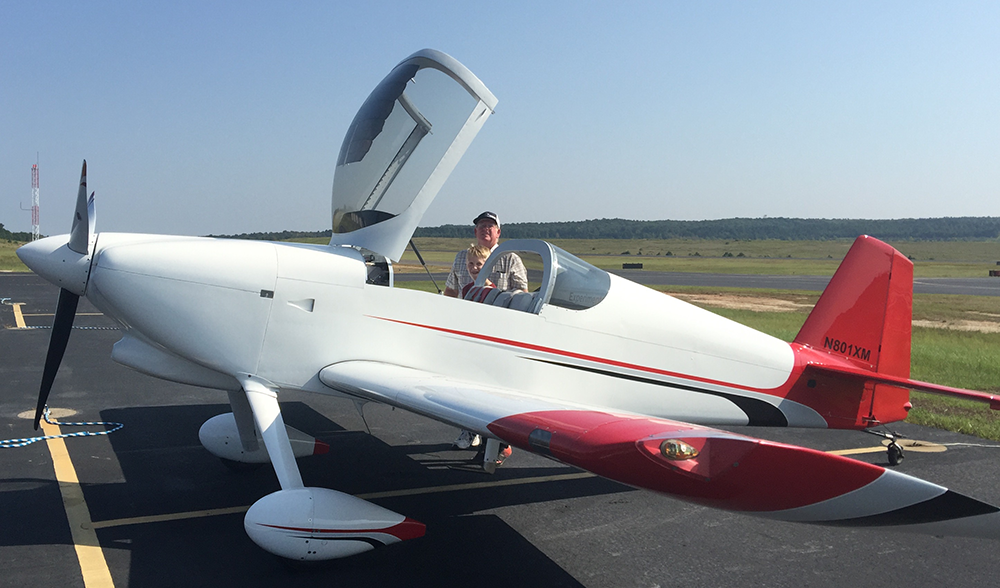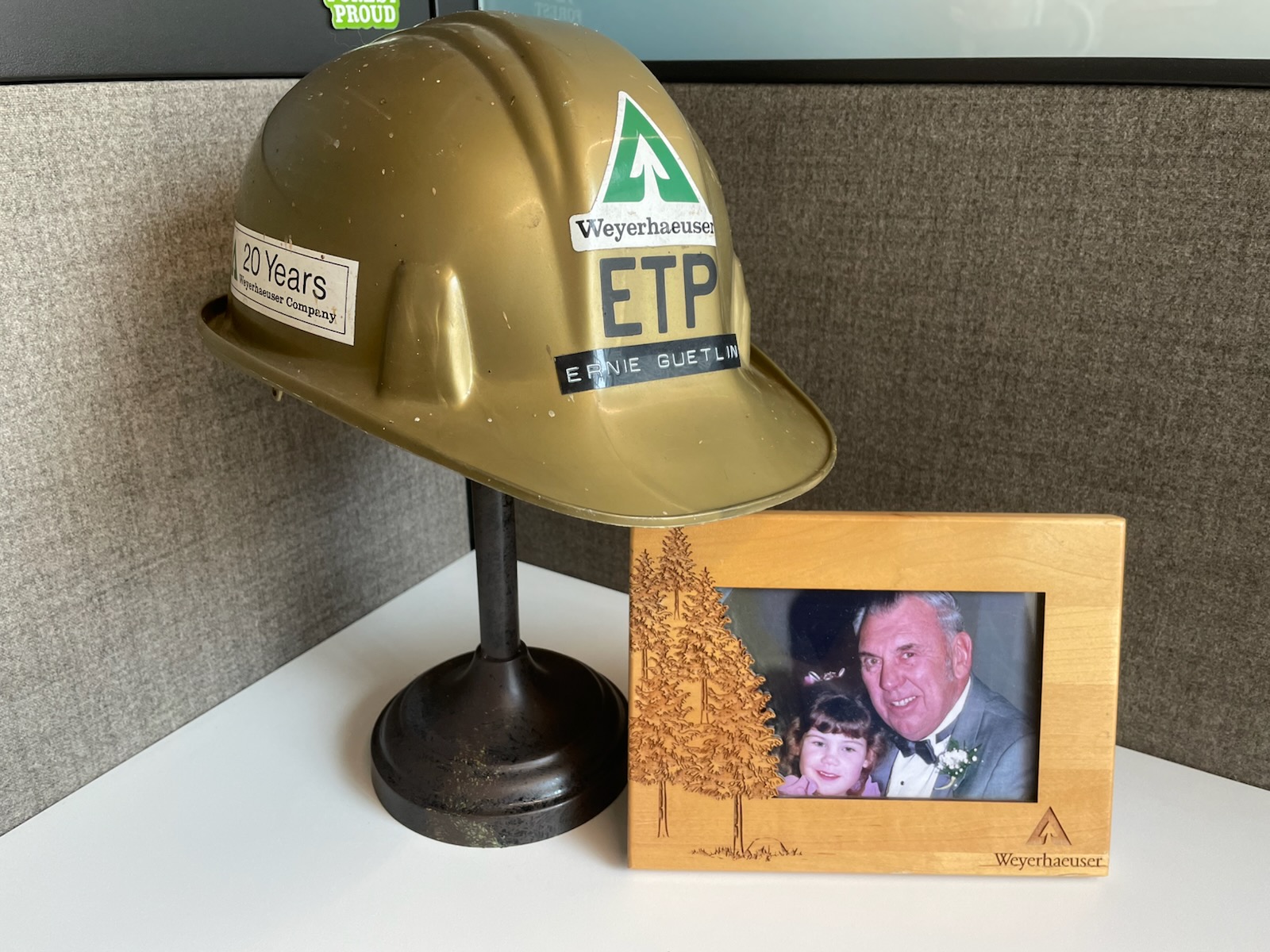While at The Nature Conservancy, Alex discusses the benefits of flood control management with Congressional leaders.
It's easy to find interviews with Alex Littlejohn on the internet, particularly on YouTube, where he’s built a reputation as a conservationist and environmental advocate. In these interviews, he quickly establishes himself as incredibly well-informed about the issues and opportunities around people and nature thriving in harmony. His passionate tone effectively connects specific details to the ecological big picture.
His expertise is well-earned. Before joining Weyerhaeuser in 2023, Alex, a Mississippi native, served as the state director of the Mississippi chapter of The Nature Conservancy, an international conservation organization that has protected approximately 120 million acres of land around the world. TNC is the largest landowner in the nonprofit space, owning 5 to 6 million acres in the U.S.
“The breadth of experience I gained over 12 years at TNC was nothing short of humbling, and I loved working with everyone there,” Alex says. “It was an all-hands-on-deck approach to conservation every single day.”
In 2023, Alex decided it was time for a new challenge and applied to our newly created conservation director role. He’s now responsible for developing and implementing a conservation strategy to support the growth of our Corporate Development organization and its Natural Climate Solutions business. This work includes establishing and nurturing partnerships with conservation groups and staying informed about the conservation marketplace.
"My favorite part of the job at TNC was land acquisitions," he says. "At Weyerhaeuser, I get to keep working on those types of conservation transactions, but across a much different footprint and from a different perspective. To me, it’s nothing short of an opportunity of a lifetime.”
Alex, at right, celebrates the announcement of a new Wildlife Management Area in Mississippi with colleagues.
GET TO KNOW ALEX
What's your background?
I studied at Mississippi State University and have a master’s degree in wetland ecology and a bachelor’s degree in forestry and wildlife management. I joined The Nature Conservancy in 2011 after completing graduate school. I juggled various projects and worked on different committees across the Southeast, including the Mississippi River Basin. I was also fortunate to represent TNC on the North American Wetland Council, which spends over $100 million annually on conserving wetland and waterfowl habitat across the U.S., Canada and Mexico. I learned a lot from those experiences and built some great relationships along the way.
Why did you choose Weyerhaeuser?
I always enjoyed my interactions with Weyerhaeuser employees during my time at TNC. Each one of them was knowledgeable, dedicated and passionate. Plus, I’ve always been fascinated by the timberlands side of the conservation equation and had heard great things about Weyerhaeuser’s ability to balance economic and environmental values. So when I learned about this opportunity, I thought it would be a good fit.
A large cypress tree on a national wildlife refuge in the Mississippi River bottoms dwarfs Alex.
What do you do as conservation director?
Luckily, the firehose has turned down just a notch. I work alongside the talented Land Asset Management team, overseeing transactions with conservation groups, be it federal, state or nonprofit organizations. I also support the larger CDO team working on Natural Climate Solutions by trying to leverage parts of the portfolio in unique and innovative ways from a conservation perspective.
How do you describe what you do to your family and friends?
At this point, people often ask for examples, so I point to properties in areas previously owned by Weyerhaeuser that are now set aside for conservation, such as Wildlife Management Areas or National Wildlife Refuges. But I also try to explain the importance of working forests across our portfolio with examples like the Moosehead easement in Maine or the Lochloosa easement in Florida. You'd be surprised at the conversations that usually generates!
Alex enjoys time in the Louisiana marsh with dear friend and former TNC colleague Keith Ouchley.
How has your experience so far compared with your initial expectations?
I was surprised by the breadth of work in our Corporate Development business. The expertise available with just a phone call is truly extraordinary. I don't say this lightly, but it's nothing short of incredible.
What've you liked so far?
Seeing the variety of projects on our land is the best part. From windmills in Maine, solar projects in Florida, tower-logging out West and everything in between. When you see the portfolio in motion and meet the incredible folks behind it — it doesn't get much better than that.
Combine that with Weyerhaeuser’s sincerity about conservation, from senior leadership to the people with boots on the ground, and it’s not hard to see why the company is the industry leader in Natural Climate Solutions.
What do you want to learn more about?
I’ve got so much to learn, but understanding as much as I can across all the business units and the various systems we have available to us is important to me. Mainly because I want to know how and where that can translate to mutual benefits through the conservation side of the business.
Alex introduces his son to Lt. Gov. Hosemann following the legislative passage of Mississippi’s Outdoor Stewardship Trust Fund in 2022.
What's been most different from The Nature Conservancy?
In any nonprofit space, you’re usually going to wear a lot of hats. I worked on land deals, easements, carbon, mitigation banks, harvest plans, hunting leases, oil and gas leases, government relations, you name it. Here, there are whole teams working on those items, which is incredible. And since TNC is a nonprofit, I also had to do things like fundraise and manage a board, which aren’t things I’m doing today at Weyerhaeuser.
Have you had any bumps in adapting along the way?
Working inside of new systems and platforms has presented a learning curve. I'm certain there are several people out there who are tired of me asking them questions!


